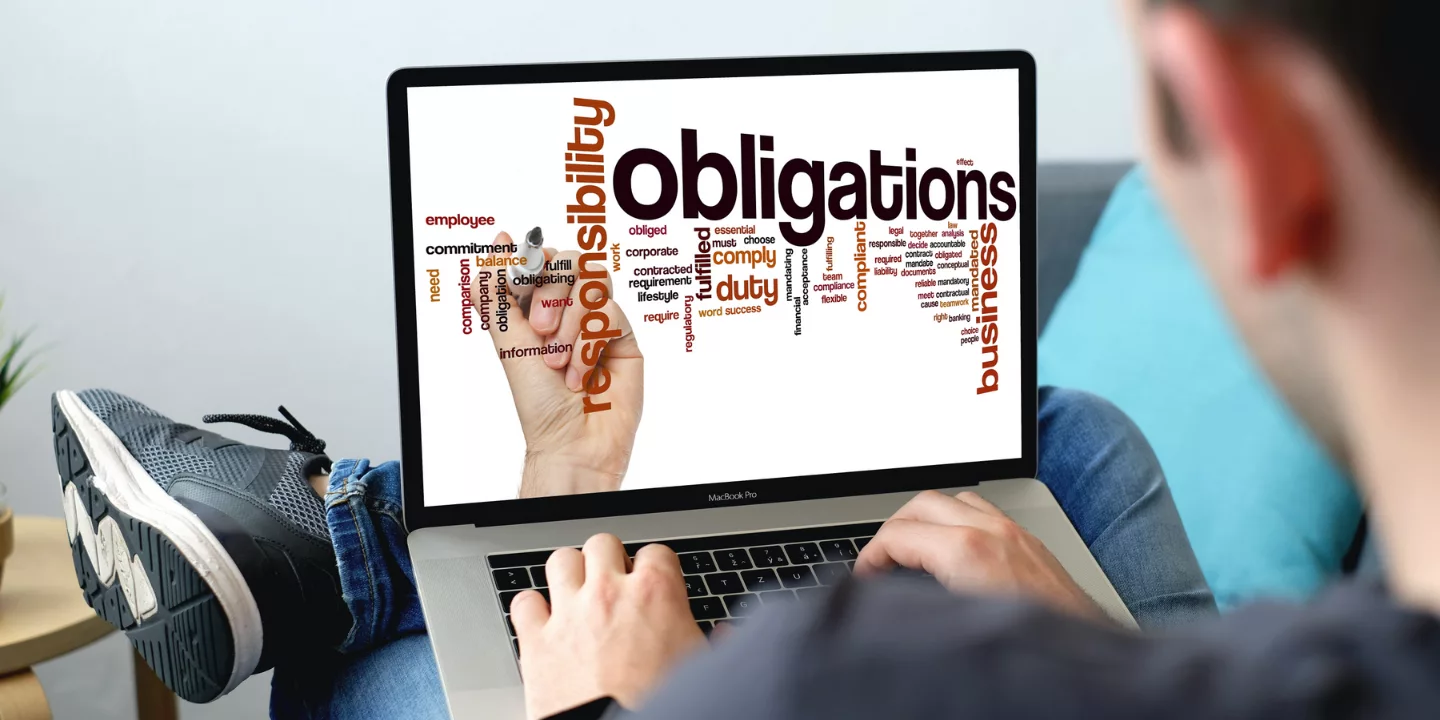management
Difficult Conversations: Why you should ditch the praise sandwich...
Why you should ditch the praise sandwich – And what you should do instead…
by Karen Amos
Every time I run a Managing Difficult Conversations training course, I have at least one delegate who advocates using the ‘Praise Sandwich’ as a structure for their conversation or feedback. I can understand why and I’ll come onto that in a moment, but first a quick explanation of what this is for those who have never heard of it.
The praise sandwich is an approach to giving feedback that starts with something positive, then adds the negative feedback, followed up by something positive to close. There is another school of thought that calls this a **** sandwich, for obvious reasons, but let's stick with the 'praise' version to save our sensibilities!
So let's look at why we use it - then we can look at why we shouldn't in a moment.
There are several reasons why the praise sandwich seems attractive to the feedback-giver. One of the main ones though, is that that we erroneously see this as ‘kind’. I mean, think about it – of course it’s kind. We’re saving the person’s feelings by telling them all the great stuff they do and leaving them on a high – fully motivated to go back to work. And we can breath a sigh of relief and tell ourselves, 'That went well...'.
Except…
OK, rather an extreme example, but the effect is the same – the message will be either lost, or misinterpreted. You’ll come across as either dishonest and manipulative, or you won’t get the change you wanted in the first place.
Years ago I had a manager who used this approach all the time. I had no idea whether I was doing a great job, or whether I was on the verge of being sacked!
So what should we do instead?
Surely, if we don’t fluff up the message at the end with something positive, we’ve a demotivated, or even irate member of staff on our hands?
Actually, I don’t believe that needs to be the case. We just need to say what we need to say - but the key is to say it well.
I like to call this the 4 C's:
- Courage - Having the backbone to deal with situations instead of burying our head in the sand and hoping it will go away
- Clarity - Saying what you have to say, getting to the point and not fluffing up the message
- Compassion - In our haste to deliver the message, it's sometimes easy to forget there's another person on the other end of this conversation, so let's treat people as we would like to be treated ourselves
- Collaboration - Working 'with' rather than doing 'to'. This coaching approach is a sure fire way to build commitment and achieve positive outcomes
So hopefully you can see that by using a coaching approach to give feedback and have those ‘difficult conversations’ we build commitment, accountability and personal responsibility. It’s supportive, but definitely not 'fluffy bunny'.
So here’s a quick coaching question to finish off…
- What are you most worried about when having a ‘difficult conversation’ with your team and what effect does this have on your approach?
If you’re interested in learning tips, tools and how to take a coaching approach for better ‘difficult conversations’, check out our latest live, interactive training workshops.
Click on the link below to find out more:
Or why not EMAIL US, or book in an informal chat using the button below. We'll find out about the support you need and provide you with a no-obligation quote.
 Karen Amos is an executive coach and Director and Founder of BrightBird Coaching & Training. She supports business owners, managers and education leaders to get the best out of themselves and their teams. She brings a down-to-earth approach to improving working lives through better leadership, communication and working relationships.
Karen Amos is an executive coach and Director and Founder of BrightBird Coaching & Training. She supports business owners, managers and education leaders to get the best out of themselves and their teams. She brings a down-to-earth approach to improving working lives through better leadership, communication and working relationships.
Tel: 07714 855757 or email: [email protected]
5 Questions to Find the Silver Bullet to Great Leadership...
5 Questions to Find the Silver Bullet to Great Leadership...
by Karen Amos
I bring you leadership bad news and good news... and 5 coaching questions to help you find the silver bullet to great leadership.
I had an interesting conversation with a client recently about people’s expectations of leadership. She said many upcoming and existing leaders in her teams are looking for that ‘Silver Bullet’ that solves all their leadership problems. Funnily enough, this cropped up again a few days later with another business contact.
The fact is, anyone who is interested in personal and professional development will find themselves inundated with book suggestions and social media posts on how ‘this one thing’ will ‘transform’ your professional life/leadership style/financial situation… blah, blah, blah…
Do I sound a bit cynical? Well I am. I don’t want to throw shade on other people’s work and indeed I am an avid collector and reader of said books and posts. I love learning. But here’s the kicker – learning isn’t doing.
And how easy is it to collect these books and blogs and not only never read them, but certainly not put them into practice? I had a friend who had every self-help book known to woman-kind on her shelves. Yet, she couldn’t understand why she had so many, but wasn’t rich/thin/motivated/calm [delete as appropriate].
The reason was simple. She’d read the first chapter on each one, found she actually had to change something for this to work and moved onto the next new thing.
So let’s get the bad news over with… There is no single ‘Silver Bullet’ to good leadership.
There. Wasn’t so bad was it? Perhaps a little disappointing, but I’m sure you knew already that any small hopes you had of any easy fix weren’t rooted in reality, didn’t you?
The fact is, leadership and people management in particular, is tough. It’s messy, gnarly, emotive and I think (please tell me this isn’t just me), all the more fascinating for it.
So what’s the good news? After all, I did promise some…
Well here it is...
You already have everything you need to be an amazing leader of people.
You don’t need a silver bullet because you have YOU!
You just need the courage and some small skills and techniques to put that into place. No gimmicks, no quick fixes, just good, honest person-centredness, a sound ethical base and an eye on what’s really important.
That’s why I love Bill George’s Authentic Leadership approach. It’s about being yourself, not some parody of a top ‘business guru’, ending up being a caricature like The Office’s David Brent.
So where to start? How do you cut through all the information out there and know what you don’t know?
Here are five coaching questions to get you started…
- What kind of leader or manager do I aspire to be?
- Which people in my past would I like to emulate? What was so great about them?
- What am I most afraid of when it comes to managing people and leadership? (Be honest here – this exercise is for your eyes only.)
- Who do I know who deals with this issue well? What do they do that I can put into place?
- What one step can I take right now that will help me overcome this barrier?
I’d love to hear your thoughts on this and remember, you can contact us any time for an informal chat, even if it’s just for a listening ear!
If you’d like to learn more about how to take a coaching approach to Managing Difficult Conversations and people management, we’ve just launched our Summer 2024 public courses.
Click on the link below to find out more:
Or why not EMAIL US, or book in an informal chat using the button below. We'll find out about the support you need and provide you with a no-obligation quote.
 Karen Amos is an executive coach and Director and Founder of BrightBird Coaching & Training. She supports business owners, managers and education leaders to get the best out of themselves and their teams. She brings a down-to-earth approach to improving working lives through better leadership, communication and working relationships.
Karen Amos is an executive coach and Director and Founder of BrightBird Coaching & Training. She supports business owners, managers and education leaders to get the best out of themselves and their teams. She brings a down-to-earth approach to improving working lives through better leadership, communication and working relationships.
Tel: 07714 855757 or email: [email protected]
How courageous is your leadership?
We have never needed courageous leaders more...
by Karen Amos
Leadership is all over the news. Firstly there's the Post Office scandal. Much of this will be new to many people, but the fact is, this is far from a new issue. I was first aware of it around 2010, as an acquaintance was one of the Post Masters in question. He ended up taking out a huge loan to patch up a financial hole, not of his making, or risk prosecution and lose the family business. The impact was devastating on his physical, mental and financial wellbeing. The situation was picked up and consistently reported on by media outlets such as Private Eye, Radio 4 and Panorama, but still no meaningful movement from either the Post Office, or indeed the government, despite them being well aware of this. People jailed, made bankrupt, family breakups and suicides. Still no-one stepped forward. Finally, a mainstream broadcaster ITV, created prime-time drama series and the government eventually commits to action.
Same with the ongoing situation with Ofsted inspections. It wasn't until the tragic death of Ruth Perry following her school's downgrading following an Ofsted inspection that a light was cast on what teachers, leadership teams and particularly Head Teachers have known for years - the process isn't fit for purpose. Untold stress and suffering within schools in the name of raising standards. Teachers and Heads reconciling themselves with feeling sick every week as an inspection was imminent and careers being wrecked, not to mention the toll on mental health. As with the Post Office scandal, this isn't 'just' the ruining of lives and livelihoods - people died.
So what's the cause of the problem? Tech? Comms? Process?
No, the cause lies with with leadership - specifically, cowardly, dishonest, unethical and self-serving leadership, which in truth is no leadership at all.
There are the leaders who focus on process, making sure everything can be monitored and that systems are in place. Those setting out the ‘business as usual’ mantra, when life is anything but. The leaders that force the perpetual direction of travel that involves people being asked to do more and more with fewer and fewer resources until those people break. Those priding themselves on being ‘decisive’, whilst never once pausing to look back and check where everyone else is on this journey. And if anyone’s lagging behind? - well, they need to get their backside in gear and quick. And finally, those leaders and business owners who seek to exploit the system, state, or people in order to make a quick buck.
Then there are inspirational leaders out there who ‘do the right thing’ by looking after their teams, clients and communities. These are the people who 'bend’ the rules where need be, provide reassurance and are understanding and empathetic to the needs of others. The leaders who understand the impact on those going through huge daily challenges such as the cost of living crisis and balancing home and work with pressures on childcare for example.
I believe we need strong, ethical leadership now more than ever and Authentic Leadership sets out the blueprint for this. The need for courage, vision, compassion and a strong set of ethical values. Above all, the ability to put these into positive action. As I’ve said before, Authentic Leadership isn’t, ‘Take me as you find me – warts and all.’ Anyone trying to lead a team with that attitude is, quite rightly, destined for failure. And it's certainly not 'fluffy bunny'. No, Authentic Leadership is the toughest thing you will ever do. It means having the courage to do what’s needed and the heart to do what’s right.
Here are a few coaching questions to get you started on checking how courageous your leadership style is...
- What do I stand for as a leader? What are my 'lines in the sand' I will never cross?
- Am I ever guilty of not following my own principles and ethics - and what causes this?
- How will I know when I'm 'doing the right thing'?
- What are the signs I may not be acting courageously as a leader - seen in myself and others? What impact does this have on me?
- What one thing could I put into place today that would ensure I was doing the right thing by others?
If you’d like to learn more about how to take a coaching approach to Managing Difficult Conversations and Effective People Management, we’ve just launched our Summer 2024 public courses.
Click on the link below to find out more:
Or why not EMAIL US, or book in an informal chat using the button below. We'll find out about the support you need and provide you with a no-obligation quote.
 Karen Amos is an executive coach and Director and Founder of BrightBird Coaching & Training. She supports business owners, managers and education leaders to get the best out of themselves and their teams. She brings a down-to-earth approach to improving working lives through better leadership, communication and working relationships.
Karen Amos is an executive coach and Director and Founder of BrightBird Coaching & Training. She supports business owners, managers and education leaders to get the best out of themselves and their teams. She brings a down-to-earth approach to improving working lives through better leadership, communication and working relationships.
Tel: 07714 855757 or email: [email protected]
Are your good habits going bad? Try scenario planning...
Are your good habits going bad? Try scenario planning...
By Karen Amos
In a couple of recent blogs, I introduced techniques to check in on yourself when setting new habits for a positive work-life balance. (See the end of this blog for links.)
I’d like to introduce a third tool to help you set habits that stick. This is one to overcome all those problems and barriers and just general pesky ‘life in general’ stuff that crops up to derail all our good intentions.
At first, this approach can seem a bit negative coming from a coach – after all, we’re meant to be the ‘think positive and it will happen people’ aren’t we? Well, for one thing, I’m not into magical thinking, and for another, I’m a down-to-earth middle-aged Yorkshire woman, so like to take a realistic and more pragmatic approach to what actually works! And this does!
So what is ‘Scenario Planning’?
Scenario planning is a project planning/strategic thinking approach to identify things that may go wrong and derail your project or plan. It's a way to build in mitigating actions, which will give your plans more chance of staying on track.
How is this useful to build better habits?
We often start off setting new habits with really good intentions. We get off to a good start, fired up and raring to go. Then reality strikes. This might be a change in priorities with incoming work and deadlines, or even someone going off sick, meaning our workload changes. The result is, we have to change our plans and never quite seem to get back on track again.
So whilst it seems all doom and gloom to spend time identifying what could go wrong with our lovely positive plans, scenario planning can actually be the key to building in some longevity into our habits. If we know what might go wrong, we’re already prepared mentally and can often put in place mitigating actions to help ensure we’re not permanently derailed.
How does it work?
Here are a few coaching questions to help you get started. (Don’t spend too much time on this though - it's more important you crack on and take action. If you identify something new as you go along, you can always add it to the list later.)
- What might get in the way or impede my progress in embedding this habit?
- How likely is this to happen? (Try a scale of 0-5 - 0 = Definitely won't/5 = Definitely will)
- Are there any particular circumstances in which this would happen?
- Are there any things that happen at certain points in the year I need to take into account?
- What can I put in place to mitigate or remove the impact of this?
Hopefully you now have a good start to set habits that will stick. Remember, this tool can also be used for any plans you’re making, whether work-related, or personal.
I have a couple more blogs about Staying on track for a better work-life balance (HERE) and If and then... Setting the conditions for a better work-life balance (HERE), for more coaching questions to help you on your way.
If you would like support with your Time Management, Work-Life Balance or general wellbeing at work, call us on 07714 855757, or email [email protected]
Find out about our training courses and coaching using the links below:
Or why not EMAIL US, or book in an informal chat using the button below. We'll find out about the support you need and provide you with a no-obligation quote.
 Karen Amos is an executive coach and founder of BrightBird Coaching & Training. She supports business owners and managers who are feeling the pressure, to get the best out of themselves and their teams. She brings a practical, down-to-earth approach to improving working lives through better leadership, communication and working relationships.
Karen Amos is an executive coach and founder of BrightBird Coaching & Training. She supports business owners and managers who are feeling the pressure, to get the best out of themselves and their teams. She brings a practical, down-to-earth approach to improving working lives through better leadership, communication and working relationships.
If and Then… Setting the Conditions for Successful New Habits
If and Then… Setting the Conditions for Successful New Habits
By Karen Amos
I wrote in an earlier blog about a technique to check in on yourself when setting new habits for work-life balance. (Click HERE to read more).
I thought I’d share another great way to help build and maintain habits. This is to set ‘If and Then’ conditions to your actions.
Here are a couple of examples:
A few years ago I decided to start running to get fit. But…
If I got home from work and sat down with a cuppa… then I got comfy and didn't go out for my run.’
However…
If I got home from work, put down my bag and immediately put on my running kit… then I’d go straight out of the door and have my run.
__________________________________________
I also had a client who was wanting to lose weight to have a more healthy lifestyle by eating more fresh food. The problem was that…
If she did her food shopping after work when she was hungry… then she would also buy lots of junk food and chocolate at the same time.
However…
If she went food shopping in the morning, or had a healthy snack before shopping… then she didn’t have the food cravings and succumb to buying unhealthy food.
So here are a few tips to help build those habits:
- Set out your conditional ‘If and Then’ statements to identify where the problem lies (See the examples above)
- Set out an ‘If and Then’ statement that will overcome this problem
- Build this intention into your diary or to-do list, so you’re conscious of it at the beginning of the day
- Get an accountability buddy – whether it’s a colleague, friend, or family member – tell them your intention – you’re much more likely to take this action if someone else knows! This could even be an ‘If and Then’ itself!
If you’d like to find out more about building better habits, I have a couple more blogs about Setting up flags to know when you’re going off track (HERE) and Using Scenario Planning to Prevent Good Habits Turning Bad (HERE), with lots more coaching questions to help you on your way.
If you would like support with your Time Management, Work-Life Balance or general wellbeing at work, call us on 07714 855757, or email [email protected]
Find out about our training courses and coaching using the links below:
Or why not EMAIL US, or book in an informal chat using the button below. We'll find out about the support you need and provide you with a no-obligation quote.
 Karen Amos is an executive coach and founder of BrightBird Coaching & Training. She supports business owners and managers who are feeling the pressure, to get the best out of themselves and their teams. She brings a practical, down-to-earth approach to improving working lives through better leadership, communication and working relationships.
Karen Amos is an executive coach and founder of BrightBird Coaching & Training. She supports business owners and managers who are feeling the pressure, to get the best out of themselves and their teams. She brings a practical, down-to-earth approach to improving working lives through better leadership, communication and working relationships.
Ready to set a better work-life balance? Here’s how to stay on track…
Ready to set a better work-life balance? Here’s how to stay on track…
By Karen Amos
What is it about September? I get more of a giddy feeling and those ‘new start’ vibes than I do at the new year.
I guess it’s just the programming I experienced in my early years of starting back at school – new teacher, new clean text books to cover in really bad wallpaper… (Showing my age now!) and best of all, a new pencil case and stationery! (That’s still a biggie for me!)
The thing is, whether we’re working in education or not, this is a very popular time to make a 'new start'. The gym I attend is busier in September and October, everyone’s had a great summer holiday and people are ready to finally take control of that ever-elusive work life balance. Then reality kicks in, other people’s stuff becomes your stuff, the nights draw in, carb-rich food beckons and before we know it, we’re right back in our old, unhelpful habits.
So how to stop that slide?
I don’t believe it’s inevitable, but I’m not going to pretend it’s easy to do.
One key factor is being conscious of what’s going on. I wrote a blog post a while ago about boiling frog syndrome and that’s definitely one of the problems. (Click HERE if you’d like to find out more…)
Basically, boiling frog syndrome says if a frog is dropped in a pan of boiling water, (Yeah, I know, but don’t shoot the messenger, I didn’t invent the concept!) it will immediately recognise it’s too hot and jump out. But if we place the frog gently into luke-warm water and gradually warm it up, it will stay in the pan and boil to death, as it doesn’t recognise the water is too hot until it’s too late.
We too are that boiling frog. We fail to recognise when things are going awry until they’re having a detrimental impact on our time and wellbeing.
You know how it goes. You’re determined not to work every evening and weekend this time and you’ll definitely stick to your new healthy eating regime. But just one piece of work for a deadline on one Sunday evening, quickly becomes every evening and before you know it, you’re grabbing a handful of biscuits on the fly because you were too tired to make your healthy pack-up on a morning.
The solution? – Little Flags!
This is why I like to introduce my ‘little flags’ to clients. These flags are mini advance warning systems we can set in place when things are going well – i.e. right at the beginning of implementing our new habits. This means we’re in a good position to think clearly about the situation, without being overly influenced by outside influences and unforeseen circumstances.
Here are a few coaching questions to help you set out good habits and flags, ready for your new start:
- What is it that I would like to change?
- How will I know when I have succeeded? (What will be happening/ what will I be doing/hearing/seeing/feeling?)
- What are the ‘flags’ that will tell me I’m going off track? What will these be telling me?
- What action can I take to remove these now?
- What action will I take if one of my flags pops up to get back on track quickly?
I have a couple more blogs about Creating the Conditions to Succeed (HERE) and How to Prevent Good Habits Turning Bad (HERE), for more coaching questions to help you on your way.
If you would like support with your Time Management, Work-Life Balance or general wellbeing at work, call us on 07714 855757, or email [email protected]
Find out about our training courses and coaching using the links below:
Or why not EMAIL US, or book in an informal chat using the button below. We'll find out about the support you need and provide you with a no-obligation quote.
 Karen Amos is an executive coach and founder of BrightBird Coaching & Training. She supports business owners and managers who are feeling the pressure, to get the best out of themselves and their teams. She brings a practical, down-to-earth approach to improving working lives through better leadership, communication and working relationships.
Karen Amos is an executive coach and founder of BrightBird Coaching & Training. She supports business owners and managers who are feeling the pressure, to get the best out of themselves and their teams. She brings a practical, down-to-earth approach to improving working lives through better leadership, communication and working relationships.
5 Tips to Help You Switch Off From Work
5 Tips to Help You Switch Off From Work
By Karen Amos
I see a lot of posts on social media about people who find they can't switch off during the holidays. Is this you? Whether you're going away somewhere or having a break at home, the feeling that your long awaited holiday is finally here, but your mind's whirring like a machine and all you can think about is how many jobs there are to do when you get back - if not before!
As a note of reassurance here, you're not alone. The pace of the working week can seem relentless. For some the 'end of the (working) day' never really comes, particularly with the advent of home-working. This means we're living in an 'Always On' state of high arousal levels and stress.
In simple terms, this means rather than your adrenaline response shutting off, allowing your stress to ebb and flow naturally, your brain has its foot on the gas pedal and keeps it there. This response is supposed to be fleeting - just long enough for you to get yourself out of imminent danger. In the case of workplace stress, it can remain in place. For months sometimes. This leaves your body and brain unable to simply flick the switch to turn off the response, even though it's not needed any more.
So what to do? Here are a few tips and coaching questions to help train your brain to lift its foot off your stress gas pedal, so you can work and rest productively. Remember, the aim isn't to solve all of these in one go. No point ending up more stressed out by trying to fix your stress levels! Instead, pick one area and take one small action at a time...
Tip #1:
See time off as an investment - Explore and clarify to yourself how you will be more productive if you take time off to rest, whether that's for an evening, a weekend or a holiday. Set out clearly what you would gain - naming it makes all the difference, then you know what you're aiming for.
Tip #2:
Make a list of everything that needs to be done - Include everything, big or small. This allows you to stop worrying that you’ve forgotten something and allows you to stop spinning those mental plates. Remind yourself you can add any jobs, when they come into your head as you go along.
Tip #3:
Prioritise what needs to be done – Do a reality check and ask yourself - Is this thing possible? – is it essential? – Also ask yourself what would happen if this wasn’t completed before the end of the month, or if you were off sick? Chances are most of these tasks will be less 'urgent' and 'important' than you feel they are right now. Where you can, block out things into a basic timescale or planner.
Tip #4:
Switch off your media – This means no checking in on emails and social media. Give yourself a digital detox and if you find this makes you anxious or you have such strong ingrained habits to pick up your phone, put your phone or laptop out of reach at least for a short while.
Tip #5:
Find something practical to do – If you engage in a practical activity, you're more likely to be distracted from the anxious feelings, at least for a while. Get outdoors for some exercise. Not only is this a great stress-buster, it will also help you to sleep. Whether it's indoors or outdoors, book activities in that you enjoy and revel in that restorative distraction. Why not catch up with friends and family too? Having a laugh and talking with others is a great distraction. Just stick to those positive people in your life and avoid the 'joy stealers'!
Hopefully, these will help you set some positive habits and ensure you have some quality time off so you're well-rested and on top of your game when you return to work. In the meantime, here's wishing everyone a positive and productive month, no matter what you have planned!
Find out about our training courses and coaching using the links below:
Or why not EMAIL US, or book in an informal chat using the button below. We'll find out about the support you need and provide you with a no-obligation quote.
 Karen Amos is an executive coach and founder of BrightBird Coaching & Training. She supports business owners and managers who are feeling the pressure, to get the best out of themselves and their teams. She brings a practical, down-to-earth approach to improving working lives through better leadership, communication and working relationships.
Karen Amos is an executive coach and founder of BrightBird Coaching & Training. She supports business owners and managers who are feeling the pressure, to get the best out of themselves and their teams. She brings a practical, down-to-earth approach to improving working lives through better leadership, communication and working relationships.
3 reasons your team may be resistant to change – and what you can do about it!
3 reasons your team may be resistant to change – and what you can do about it!
By Karen Amos
I’ve been busy delivering the ‘Managing Change’ session from my Effective People Management programmes these last few weeks. This is definitely one of those subjects that at first glance seems easy, but is a veritable Russian doll when you start to unpack it.
I recall times throughout my career where change has been well implemented and accepted, indeed embraced by teams and many more times when I’ve just emitted an inward (and sometimes outward) groan when informed of yet another new strategy/change/initiative [delete as appropriate]. On that note, isn’t it strange what a word so positive as ‘initiative’ can invoke such an energy dump in a different context?
Whilst the vast majority of change is instigated with positive intentions – i.e. to make things better – it can so quickly invoke a negative response and be the cause of low staff morale and even increase staff turnover if handled badly.
Here are 3 reasons you may be experiencing resistance to change from your team (or even personally) and a coaching perspective on how to address this…
1. Your team doesn’t understand why the change is necessary
This is about supporting your team to understand the reason behind the change. There’s an understandable filter that takes place where information is cascaded down an organisation and people in less senior roles are, often rightly, given less detail than people who are more senior. I do think we need to treat people as the adults they are though. To paraphrase Nietzsche, the person with a ‘why’ can tolerate almost any ‘how’.
Solution:
Consider the perspectives and experience of your team. It’s easy to forget as a leader that we have much more information and control than those we manage. An honest appraisal, including the benefits of the changes and the consequences of not taking this course of action will always be appreciated. Over time, your teams will accept you’re trustworthy and there’s no game playing going on. Remember, if there is sensitive information you can’t share, be honest about that too.
2. People don’t feel involved or listened to
In the midst of all the activity in implementing a new change, time to discuss, consult and more importantly, listen can come a poor second. Remember that as manager and leader, you naturally have much more control and usually knowledge, about the change. It’s easy to forget that your team don’t share this.
Solution:
Hold regular check-ins with your team and allow people to voice their concerns. It’s understandable that you may not want to seek this out, lest it turn into another ‘moan-fest’, but hearing people out and giving information where needed will prevent people from lagging behind, or at worst being so engaged they decide to leave the organisation altogether.
3. Your people have ‘change fatigue’
Have you ever stopped to consider that change just seems to be a permanent fixture of working life? Lots of my clients comment that there’s never a pause to take a breath and reflect and let the changes embed. It’s either one change, then straight into another, or what’s more usual, multiple changes going on at the same time. It can be hard for teams and indeed ourselves as leaders, to truly evaluate what the impact of the change is. With this comes a sense of never quite achieving an end result, leading to frustration and low motivation.
Solution:
Ensure you consult with your team to build in mini-goals and celebrate progress and ‘wins’ throughout the change process. Where possible, give people a project, or part of a project to own and champion, in a way that plays to their strengths and things they enjoy if possible. That way, they can have more autonomy and also see they’ve played a clear part in achieving the overall goal. Whilst it’s not always possible, be conscious of implementing multiple changes and reduce these where possible to allow new ways of working to embed themselves, even for a short time. This will then be assimilated into your organisation’s culture and people will be more enthused for the next change.
I hope that helps with a little food for thought regarding change in your setting or organisation.
If you’d like to know more about how we can support your leaders and teams with 1-to-1 or team coaching, or would like to discuss our in-house live, online leadership programmes, you can:
Email us at: [email protected]
Or call us: 07714 855757
or click HERE to book in a short, no-obligation chat
Karen Amos is an executive coach and founder of BrightBird Coaching & Training. She supports leaders and managers to get the best out of themselves and their teams. She brings a down-to-earth, practical approach to improving working lives through better leadership, communication and working relationships.
Want to be a coaching manager? Here's the magic ingredient...
Want to be a coaching manager? Here's the magic ingredient...
By Karen Amos
I’m feel fortunate that there are lots of managers who are tuning into in how coaching can help them and their teams.
It’s probably no surprise that I firmly believe coaching can completely transform the behaviour, mindset and performance of teams in the workplace. In fact, I more than believe it, I’ve seen the results for myself.
The thing is in our ever-busy working lives, time is at a premium, so many people are looking for a magic ingredient that will turn them into a coach. The magic ingredient that means they can start to reap the benefits.
As a result, I thought I’d bring in a quick reality check around expectations and what you CAN do, to be a great coaching manager.
Let’s start off with a few of the ‘myths’ I encounter…
Myth 1 – Reading a coaching book will turn me into a great coach
Myth 2 – Getting a coaching qualification will turn me into a great coach
Myth 3 – Going on a coaching course will turn me into a great coach
Actually, all of the above will help. The bad news however, is that reading a book, getting a qualification, or going on a course will never turn you into an amazing coaching manager overnight.
In order to coach, you need to learn the skills and techniques to ask great coaching questions, along with other tools. But here’s the challenge…
If you don’t actually DO anything differently – if you never practice these techniques and skills, nothing will change.
I had an acquaintance who bought every self-help book known to human-kind – or so it seemed! The problem is none of it changed her life in the slightest. Does this mean the books didn’t work? Not at all. The fact is, not only did she rarely get past the first chapter, she never put any of her learning into practice – and if she did, not consistently.
So unfortunately you won’t be able to become a better coach through a process of osmosis, where learning will radiate off your bookshelf, or training course and magically transform you into the coach you’d like to be.
If these don’t work – what does?
This means getting out of your comfort zone. Walking the walk as a manager. Trying at least one approach, or question very consciously even once a day.
If you’re about to think, ‘Yeah, but it’s not that simple…’, then I would ask you to look inwards. I’m guessing you want to start coaching to help people change, to improve their performance. If that’s the case then we need to walk the walk as managers and leaders. Ask yourself, ‘should I be expecting people to change, do things differently and get out of their comfort zone, if I’m not prepared to do so myself?’
Another thing to consider is to build coaching conversations into your daily interactions. Any conversation with another person has the potential to be a coaching conversation. It involves listening and understanding the other person’s point of view, with a healthy dose of curiosity to explore what’s really going on and help them find their own solution to any problems.
Remember that coaching isn't about feeling clever whilst you fire lots of 'challenging' questions at someone. At it's heart, it's about great communication - taking the time to listen, understand and helping the other person work out a solution.
So go on, give it a go!
Coaching Question:
What one step could you put in place today to help you improve your coaching and communication skills?
If you’d like to know more about how our fully-interactive coaching skills courses can help you implement a coaching approach in your workplace, check out our coaching skills for managers mini-programmes. There's NO HOMEWORK and NO ROLEPLAY! Just lots of practical tools, approaches, discussion and practice, so you can put your learning into place straight away.
For schools and education settings
For business and organisations
Or check out our great value in-house training options:
For schools and education settings
For business and organisations
Or call us: 07714 855757
or click HERE to book in a short, no-obligation chat
Karen Amos is an executive coach and founder of BrightBird Coaching & Training. She supports leaders and managers to get the best out of themselves and their teams. She brings a down-to-earth, practical approach to improving working lives through better leadership, communication and working relationships.
Introducing coaching at work when you don't have time
Introducing coaching at work when you don't have time
By Karen Amos
‘Coaching’s great, but I don’t have time to coach my teams’. This is a statement I frequently encounter when introducing coaching as a management and leadership approach. I would argue that in the long run, utilising coaching will actually save time, reducing the amount of frequent, small questions to be fielded and building a culture of personal responsibility.
Let’s be clear, we aren’t talking about managers and leaders being coaches in the same way I work as a professional development coach. There are many reasons why managers can’t just sit down for a dedicated 1-to-1 session with someone, time being just one of these. What we are talking about is managers and teams taking a Coaching Approach to their interactions with each other.
Here are a few quick tips to help you begin to develop your coaching approach:
- Listen and show understanding – How often do we interrupt someone, or merely wait for them to take a breath, so we can astound everyone with our superior knowledge? I’m sure it’s something we’re all guilty of at some point. The first stage in being an effective coaching leader is to listen – I mean really listen.
Tip - One way of checking you’ve understood correctly and demonstrating this to the other person is to paraphrase at the end of their explanation. Try something like, ‘So what you’re saying is…’ If you get it right, they’ll feel understood. If you get it wrong, they’ll correct you. Win-Win!
- Begin with the end in mind – Good old Stephen Covey embedded this concept in his 7 Habits of Highly Successful People, and with good reason. Whilst coaching can be and is reflective, its main focus is on what we want to achieve. Focusing on the solution, rather than the problem.
Tip – Ask, ‘What do I want to achieve here,’ or, ‘What would a good outcome look like,’ to avoid getting caught up in the details of what’s going wrong and indulging in yet another moan-fest.
- Ask not tell – This is a key factor in coaching – Asking powerful questions. This is not giving advice – e.g. ‘why don’t you do xyz instead?’, or telling people what to do. This approach is all about asking meaningful, open questions that move the person on to look at the options open to them so they can make a constructive decision.
Tip – There are an endless supply of questions that can be used in coaching. A few examples would be things like:
o What’s really going on for you right now?
o What are the main barriers that are in your way?
o If you could do anything you wanted, what action would you take?
o What would your wisest friend do in this situation?
- Foster personal responsibility – Don’t ‘fix’ – Following on from asking powerful questions, an effective coaching manager will ensure they allow their staff space to work out and try their own solutions. This can be scary initially, particularly when someone wants to resolve things in a way you wouldn’t choose. Of course, you’ve got to weigh up the risks here – this certainly doesn’t mean you throw caution to the wind if someone is proposing to embark on some highly risky endeavour. Allowing people to choose their own course of action is extremely motivating though and will result in them taking more autonomy and personal responsibility for finding their own solutions.
Tip – If you find yourself wanting to ‘fix’ someone, stop and consciously ask them what they think they should do. Questions like, ‘What are the main sticking points for you here?’ and ‘What do you think you can do about this?’ are great ways to hand responsibility back to the person.
Hopefully you’ll find these useful on your journey to embedding coaching in your day to day interactions. One final tip is not to try all of these at once. Identify one area you could improve and set out some conscious intentions to work on this in your interactions with a member of your team. That way you’ll start to get into the coaching habit!
Check out the links below to find out more about our latest coaching-based training courses and programmes. We also offer individual and team coaching on leadership, interpersonal, communication and performance matters.
For schools and education settings
For business and organisations
Or call us: 07714 855757
or click HERE to book in a short, no-obligation chat
Karen Amos is an executive coach and founder of BrightBird Coaching & Training. She supports leaders and managers to get the best out of themselves and their teams. She brings a down-to-earth, practical approach to improving working lives through better leadership, communication and working relationships.













